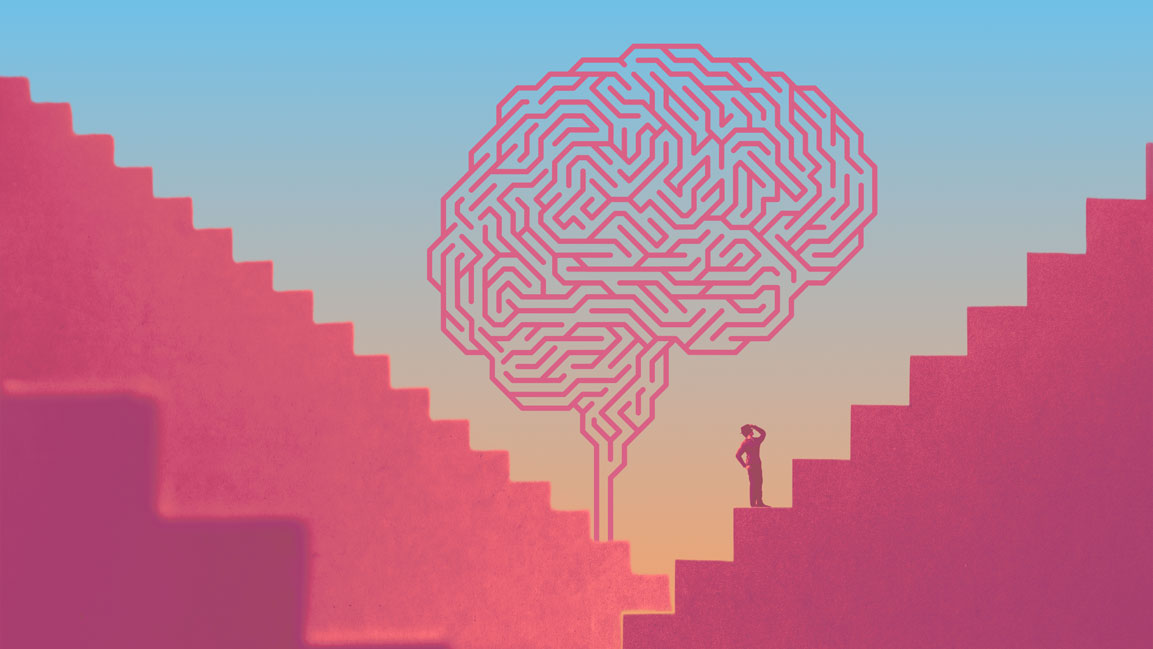- | 9:00 am
Career in a rut? This is how you can hack your brain for success
Success isn’t just about external achievements; it’s about teaching your brain to think differently

As Monday morning rolls inexorably around, countless employees find themselves trapped in the same old cycle – working hard yet getting nowhere, just another hamster in a wheel.
Career stagnation is at an all-time high.
A recent Gallup survey found that over 50% of workers globally feel disconnected from their jobs, contributing to an economic impact of $8.8 trillion. Many report feeling fed up, disengaged, and stuck in their careers, uncertain how to move forward.
Few films capture the drudgery of office life better than Office Space, the oft-quoted nineties classic that satirizes corporate frustration and absurdity. Its protagonist, Peter Gibbons, voices a sentiment that still resonates in 2025: “So I was sitting in my cubicle today, and I realized, ever since I started working, every single day of my life has been worse than the day before it.”
Sadly, his disillusionment with the grind remains painfully familiar for modern professionals battling burnout and stagnation. Peter bluntly says, “It’s not that I’m lazy, it’s that I just don’t care.”
These days, social media only magnifies the situation, with feeds filled with photogenic overachievers (apparently) leaping ahead in life.
Take fitness influencer Ashton Hall, whose viral morning routine sparked a heated debate online. His meticulously structured schedule starts at 3:50 am, stretching for nearly six hours, complete with ice-cold facials, banana peel skincare, and an intense workout regimen.
While Hall claims his method transformed his life, many viewers found it excessive, unrealistic, and performative. The video amassed over 157 million views, but rather than inspiring, it left many questioning whether extreme discipline is truly the key to success or merely another unattainable ideal.
There’s no doubt that action matters. But is more hustle the answer?
Perhaps the key to lasting success isn’t just working harder; it’s hacking your brain.
REPROGRAMMING SUCCESS FROM WITHIN
For Anne Jackson, a therapeutic master life coach, achieving career breakthroughs isn’t about grinding harder – it’s about looking inwards. “When our self-worth is rooted in fear–of–failure, of being overlooked, of not being enough – we operate from scarcity,” she explains.
Instead of chasing external validation, Jackson advocates deep inner work as the foundation for lasting success.
One of the most effective strategies, she explains, is Cognitive Behavioural Therapy (CBT), which challenges self-limiting beliefs such as “I’m not good enough” or “If I fail, I’ll be rejected.”
Meanwhile, Acceptance and Commitment Therapy (ACT) enables individuals to accept negative thoughts without allowing them to dictate their actions. “You cannot serve others if you are constantly battling yourself,” Jackson says.
THE NEUROSCIENCE OF CAREER SUCCESS
Motivational speaker Sean Douglas takes this concept further, seeing success as an internal rewiring job. And he has walked the walk.
Once trapped in alcoholism and self-destructive habits, Douglas struggled with hopelessness and self-doubt. Determined to break free, he turned to brain-hacking techniques, rewiring his thought patterns through positive reinforcement, visualization, and repetition.
He transformed his life by mentally rehearsing success, adopting daily mindset shifts, and reinforcing empowering narratives – eventually becoming a TEDx speaker and leadership coach.
His message is simple: success isn’t just about external achievements – it’s about teaching your brain to think differently. As Douglas says, “Your brain is the most powerful tool you own – train it, and success will follow.”
THE SCIENCE BEHIND MENTAL REPROGRAMMING
The idea that brain function holds the key to career success has gained traction beyond coaching circles.
In The Leading Brain, Friederike Fabritius and Hans W. Hagemann challenge the belief that less stress is always better.
Instead, they propose the concept of optimal arousal – where just enough pressure enhances performance, while too little leads to disengagement and too much causes anxiety.
Some thrive under tight deadlines, while others buckle under stress. Tracking how your brain responds to work tasks and adjusting your environment—changing your schedule and workspace or even introducing humor—can help you fine-tune your peak performance zone.
Fabritius and Hagemann also debunk the multitasking myth, revealing that switching between cognitively demanding tasks depletes brain resources and reduces effectiveness.
Their STOP method—Stop, Take a breath, Observe, Proceed—offers a mindfulness-based reset that helps professionals stay engaged and combat workplace stress.
Beyond focus, habit formation plays a crucial role in productivity. The kaizen method, originally a military strategy, emphasizes small, manageable steps toward success, reducing procrastination and anxiety while building momentum through incremental wins.
THE POWER OF CLARITY
For those seeking a tangible way to advance, Dubai Business Mindset Coach Shelley Bosworth highlights one critical factor: clarity.
“We can get swept up in what everyone says we should do and want. But when you’re clear about what you’re trying to achieve and why, it keeps you focused and helps you drown out the external noise and inner worries.”
Bosworth cautions against comparison, a silent confidence killer. Instead of measuring success by others’ achievements, she urges professionals to focus on their progress.
“The only comparison that matters is the one to yourself – the movement you’re making forward and the steps you’re taking toward your goals.”
PRACTICAL TIPS FOR BREAKING CAREER STAGNATION
Dubai-based Career Development Coach Claudia Davey shares two research-backed strategies for improving confidence and abilities at work.
She believes coaching and mentoring programs – whether internal coaching, external executive coaching, or group mentoring – provide a strategic learning environment, breaking down hierarchical barriers and boosting professional growth.
Meanwhile, the Confidence-Competence Loop offers a psychological edge – where confidence grows through action. By repeatedly practicing and refining skills, individuals strengthen confidence and competence, building self-assurance.
A final thought – one that Morpheus imparts to Neo in The Matrix:
“There’s a difference between knowing the path and walking the path.”
Success isn’t just about knowing what needs to be done – it’s about committing to the process, rewiring your mind, and making real changes.







































